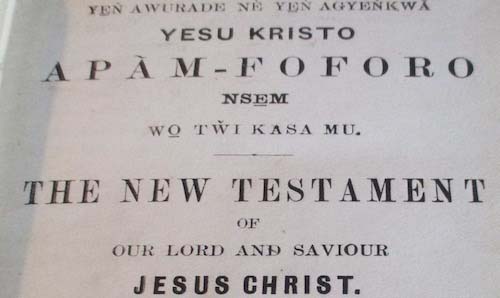Economic and Legal Lexicons in Twi and Hausa Bibles
Gerardo Serra (Presidential Fellow in History, The University of Manchester), Steven Pierce (Senior Lecturer in History, The University of Manchester)

Colonial expansion in Africa depended on a basic three Cs, Civilisation, Christianity, and Commerce. For many African societies, translating the bible into local languages was a pivotal site of conceptual and linguistic negotiation, re-definition, and invention. Missionary translations of the Old and New Testament made crucial choices of orthography, grammar, and semantics. In doing so, they helped to standardise many languages and to institutionalise their written forms.
The project will analyse how the earliest translations, in the second half of the 19th century, of the Bible into Twi (spoken mainly in Ghana) and Hausa (spoken primarily in Northern Nigeria, but acting as a traders’ lingua franca in much of West Africa) expressed and translated notions of justice, wealth, poverty, and community.
The project brings together conceptual history, linguistic and legal anthropology, translation studies, and the history of religion. The close reading and translation of a sample of passages from the Old and New Testament will enable a finer-grained history of missionary endeavours by tracking the evolution of the same missionary’s translation of Old and New Testament (Twi translations by Johann Gottlieb Christaller, Theophilus Opoku and David Asante) and by comparing competing editions of sacred texts (the Hausa Gospels of Mark by James Frederick Schön and W.R.S. Miller). More importantly, it will allow us to identify a lexicon of missionary influences upon economic, political and legal thought in southern Ghana and northern Nigeria.
This reconstruction is the starting point for a series of additional questions and hypotheses on the semantic relationship between the missionaries’ and indigenous worldviews and categories, biblical translation as a literary form and its place within West African devotional literature, and the legacies of missionary translation choices in contemporary economic and legal cultures.
